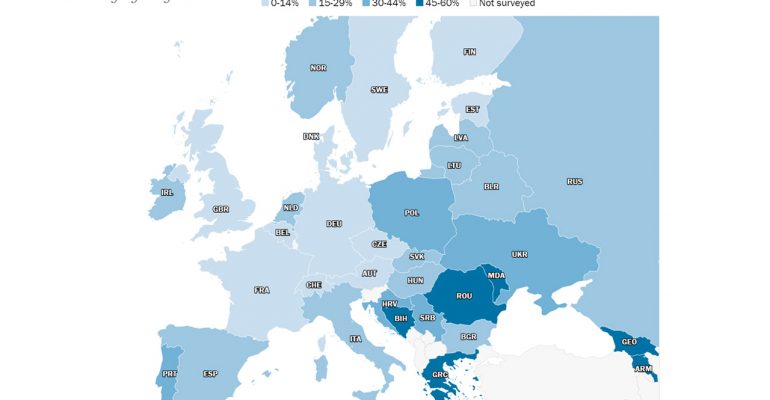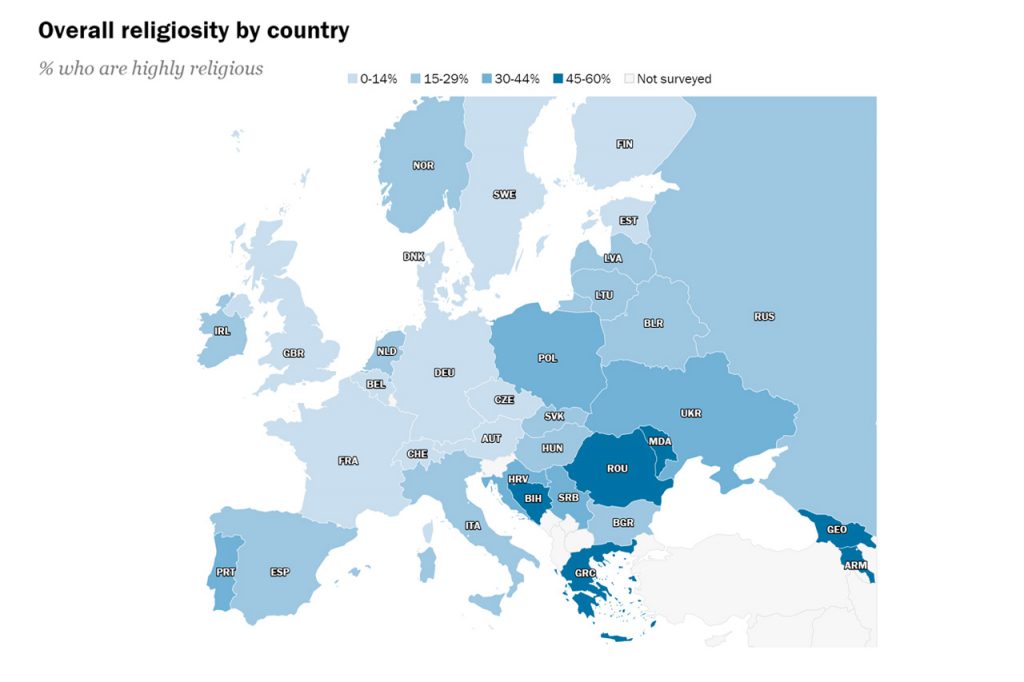Map: How do European countries differ in religious commitment?
December 4, 2018 2024-03-18 16:01Map: How do European countries differ in religious commitment?

Map: How do European countries differ in religious commitment?
Europeans generally are less religious than people in other parts of the world. But within Europe, there are sometimes sizable differences in levels of religious commitment, according to an analysis of recent Pew Research Center surveys in 34 countries.
There are many ways of defining what it means to be religious, but for this analysis, we looked at four common measures of religious observance: religious service attendance, prayer frequency, belief in God and self-described importance of religion in one’s life.
The interactive tool above allows you to see how 34 countries across Europe rank on each of these measures – and by the share of adults in each country who are “highly religious” overall.
Using the combined measure shows that, overall, Central and Eastern Europeans are more likely than Western Europeans to be highly religious. For example, in Armenia and Greece, roughly half of adults are highly religious. Meanwhile, only about one-in-ten people in Denmark, Sweden and the United Kingdom qualify as highly religious by these criteria.
A similar pattern holds when we look at the four measures of religious commitment individually, with Central and Eastern Europeans generally more likely than Western Europeans to say religion is very important in their lives, they attend religious services at least monthly, they pray every day, and they believe in God with absolute certainty. For instance, half or more adults in Armenia, Bosnia, Georgia, Greece and Romania say religion is very important in their lives, compared with about one-in-ten in France, Germany, the United Kingdom and several other Western European countries.
At the same time, not all countries in Western Europe have low levels of religious commitment, and not all countries in Central and Eastern Europe are at the higher end of the index. For instance, 37% of Portuguese adults are highly religious, significantly more than other Western European countries and in line with Poland. And the Czech Republic and Estonia have religiosity levels similar to Denmark, noticeably lower than those in most other Central and Eastern European countries.
Source: Pew Research Center









